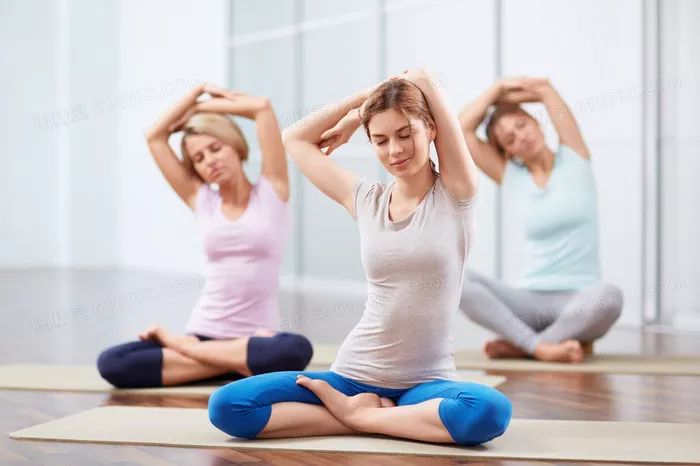Yoga is an ancient practice that offers immense physical, mental, and emotional benefits. Among its many styles, Yin Yoga stands out as a gentle yet profound practice that targets the deeper connective tissues, promoting flexibility, relaxation, and balance. While many people incorporate Yin Yoga into their weekly routines, practicing it daily can bring unique transformations. However, as with any daily practice, it’s essential to understand what to expect and how to approach it mindfully.
In this article, we will explore what happens when you do Yin Yoga every day, the benefits you can expect, the potential challenges, and how to maximize the positive effects of this deeply restorative practice.
What Is Yin Yoga?
Yin Yoga is a slower-paced style of yoga that involves holding poses, or asanas, for an extended period—usually between 2 to 5 minutes. Unlike more dynamic yoga styles such as Vinyasa or Ashtanga, Yin Yoga targets the body’s connective tissues, including ligaments, joints, and fascia, rather than focusing on muscle strength or cardiovascular fitness.
Key features of Yin Yoga include:
Passive Stretches: The poses are held with minimal muscular effort, allowing the body to relax deeply.
Mindful Breathing: Attention to the breath is an integral part of the practice, fostering mindfulness and inner calm.
Target Areas: The practice typically focuses on areas rich in connective tissue, such as the hips, pelvis, lower back, and shoulders.
By stimulating these deeper tissues, Yin Yoga can improve circulation, flexibility, and joint health, while calming the nervous system and supporting emotional well-being.
The Benefits of Practicing Yin Yoga Every Day
1. Improved Flexibility
Yin Yoga emphasizes long-held stretches that target the fascia, a connective tissue that surrounds muscles and organs. Over time, daily practice can:
- Release tension and adhesions in the fascia.
- Increase the range of motion in joints.
- Promote greater ease in other physical activities or yoga styles.
Unlike active stretching, Yin Yoga relies on gravity and time, making it an effective way to gently deepen flexibility without overstressing the body.
2. Enhanced Joint Health
Daily Yin Yoga stimulates and strengthens the connective tissues around joints, improving their health and resilience. This is particularly beneficial for:
- Aging individuals, as joint stiffness often increases with age.
- Athletes, who may experience wear and tear from high-impact activities.
- Anyone seeking to prevent conditions like arthritis or joint degeneration.
By nourishing the synovial fluid in joints and encouraging gentle movement, Yin Yoga can keep joints supple and functional over time.
3. Stress Relief and Nervous System Regulation
In our fast-paced, stress-filled lives, Yin Yoga offers a sanctuary of stillness. Practicing daily can:
- Activate the parasympathetic nervous system, known as the “rest and digest” mode.
- Reduce levels of cortisol, the stress hormone.
- Create a meditative state that calms the mind and enhances emotional resilience.
The combination of mindful breathing, long holds, and introspection in Yin Yoga can alleviate anxiety, improve sleep quality, and promote a sense of overall well-being.
4. Emotional Release
Yin Yoga has a profound effect on emotional health. Each pose often targets specific meridians (energy channels) and chakras, which are believed to store emotions. Daily practice may lead to:
- The release of suppressed or stagnant emotions.
- A deeper connection with your inner self.
- Increased emotional clarity and balance.
As Yin Yoga encourages mindfulness and presence, it allows practitioners to process and let go of emotional baggage, fostering a sense of lightness and freedom.
5. Supports Meditation Practice
Yin Yoga is often described as a meditative practice. The stillness and focus required can:
- Improve concentration and mental clarity.
- Serve as a gateway to seated meditation for those who find traditional meditation challenging.
- Cultivate mindfulness, as you learn to stay present with sensations and thoughts.
By integrating Yin Yoga into your daily routine, you may notice a stronger ability to stay centered and calm, both on and off the mat.
6. Balancing Energies
According to Traditional Chinese Medicine (TCM), Yin Yoga targets the body’s energy pathways or meridians, helping to balance the flow of qi (life force). Practicing daily can:
- Harmonize yin and yang energies, creating a sense of inner equilibrium.
- Address specific imbalances, such as fatigue, sluggishness, or overstimulation.
This energetic balance can lead to improved vitality and a deeper connection with your body.
7. Increased Awareness of Body and Mind
Daily Yin Yoga encourages a deeper understanding of your body’s needs and limitations. Over time, you may become more attuned to:
- Physical sensations and areas of tension.
- Emotional patterns and responses.
- The interplay between your thoughts, emotions, and physical state.
This heightened awareness fosters self-compassion and helps you make choices that support your overall health.
Potential Challenges of Daily Yin Yoga Practice
While the benefits of Yin Yoga are numerous, daily practice may come with some challenges. Here’s what to watch out for:
1. Overstretching
Holding poses for extended periods every day may lead to overstretching or straining tissues, especially if you push beyond your limits. To avoid this:
- Focus on gentle, mindful stretching rather than forcing depth.
- Use props like blocks, bolsters, or blankets for support.
- Listen to your body and respect its boundaries.
2. Mental Resistance
The stillness of Yin Yoga can be challenging for those who are used to more dynamic or fast-paced practices. You may experience:
- Restlessness or impatience during long holds.
- Difficulty quieting the mind.
Practicing daily can help you work through this resistance, cultivating patience and acceptance over time.
3. Time Commitment
While Yin Yoga sessions can be as short as 15 minutes, dedicating time every day may feel challenging for those with busy schedules. To make it sustainable:
- Start with shorter sessions and gradually increase the duration.
- Integrate it into your morning or evening routine for consistency.
Tips for Practicing Yin Yoga Daily
To maximize the benefits of daily Yin Yoga while minimizing risks, consider these tips:
1. Vary the Sequence
Avoid doing the same sequence every day. Mix it up to target different areas of the body and prevent overuse of certain joints or tissues.
2. Prioritize Recovery
Although Yin Yoga is gentle, your connective tissues still need time to recover. If you notice any discomfort or fatigue, opt for a shorter session or take a day off.
3. Use Props
Props can enhance your practice by providing support and reducing strain. Experiment with bolsters, blocks, straps, and blankets to make poses more comfortable.
4. Focus on Breath and Mindfulness
The meditative aspect of Yin Yoga is as important as the physical practice. Pay attention to your breath and cultivate awareness in each pose.
5. Seek Guidance
If you’re new to Yin Yoga, consider attending classes or following guided practices online. This ensures you’re using proper techniques and benefiting fully from the poses.
Long-Term Effects of Daily Yin Yoga Practice
With consistent daily practice, you may notice profound changes in your physical, mental, and emotional health. These include:
Greater Resilience: Both physically and emotionally, as you develop a deeper connection with your body and mind.
Improved Posture: By releasing tension and increasing flexibility, Yin Yoga can counteract the effects of poor posture from sitting or repetitive movements.
Heightened Self-Awareness: The introspective nature of Yin Yoga fosters a better understanding of yourself and your needs.
Enhanced Quality of Life: The combined physical, emotional, and mental benefits contribute to a greater sense of well-being and fulfillment.
Conclusion
Practicing Yin Yoga every day is a transformative journey. It offers a powerful opportunity to nurture your body, calm your mind, and connect with your inner self. However, like any daily habit, it’s essential to approach it with mindfulness, balance, and self-compassion.
Whether you’re seeking improved flexibility, stress relief, emotional release, or enhanced awareness, daily Yin Yoga can be a cornerstone of your wellness routine. By listening to your body, honoring its needs, and embracing the stillness of the practice, you can unlock profound benefits that extend far beyond the mat.
Related Topics:























